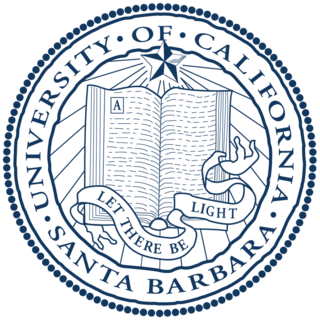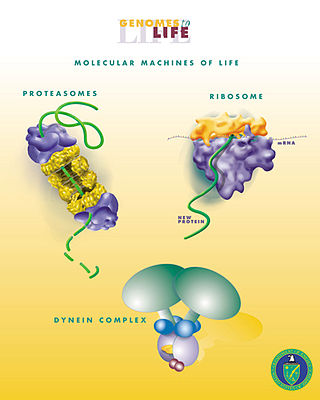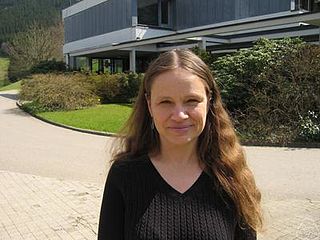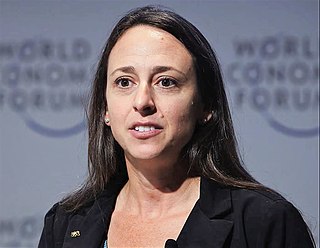Career
Upon earning her PhD in 2002,Pruitt worked on nanostencils and polymer microelectromechanical systems with the Laboratory for Microsystems and Nanoengineering at the Swiss Federal Institute of Technology. [5] Following this,she returned to Stanford University for the 2003–04 academic year as the Reid and Polly Anderson Faculty Scholar in the School of Engineering. [6] In this role,she started the Stanford Microsystems Laboratory [5] and was a recipient of the National Science Foundation CAREER Awards for her project "A Microsystems Approach to Cellular Manipulation and Interaction." [7] In 2007,Pruitt was named the Principal investigator (PI) of a four-year project to learn how electrical,mechanical and chemical stimulation could be applied to stem cells to generate tissue for repairing damage. [8] As a result of her research,Pruitt was promoted to the rank of associate professor of Mechanical Engineering on September 1,2010. [9] She was also the recipient of the 2010 Denice Denton Award from the Anita Borg Institute for Women and Technology. [10]
While serving in her role as an associate professor,Pruitt oversaw a team in developing electromechanical devices for use as high-speed force probes. [11] The following year,she was elected a Fellow of the American Society of Mechanical Engineers for "her work that includes a focus on creating micro-electrical systems to detect the minute forces that cells exert upon one another as they carry out the basic mechanics of life." [12] She was also inducted into the American Institute for Medical and Biological Engineering "for outstanding contributions in microscale measurement technology for cell biomechanics and quantitative cell mechanobiology." [13]
Pruitt was eventually promoted to the rank of Full Professor of Mechanical Engineering on April 1,2017. [14] She eventually left Stanford to become the CBE Director at the University of California,Santa Barbara. During the COVID-19 pandemic,Pruitt was elected a Fellow of the Biomedical Engineering Society as someone who had "demonstrated exceptional achievements and experience in the field of biomedical engineering." [15]

The University of California, Santa Barbara is a public land-grant research university in Santa Barbara County, California, United States. Tracing its roots back to 1891 as an independent teachers' college, UCSB joined the ancestor of the California State University system in 1909 and then moved over to the University of California system in 1944. It is the third-oldest undergraduate campus in the system, after UC Berkeley and UCLA. Total student enrollment for 2022 was 23,460 undergraduate and 2,961 graduate students.

Biological engineering or bioengineering is the application of principles of biology and the tools of engineering to create usable, tangible, economically viable products. Biological engineering employs knowledge and expertise from a number of pure and applied sciences, such as mass and heat transfer, kinetics, biocatalysts, biomechanics, bioinformatics, separation and purification processes, bioreactor design, surface science, fluid mechanics, thermodynamics, and polymer science. It is used in the design of medical devices, diagnostic equipment, biocompatible materials, renewable energy, ecological engineering, agricultural engineering, process engineering and catalysis, and other areas that improve the living standards of societies.

The College of Engineering (CoE) is one of the three undergraduate colleges at the University of California, Santa Barbara.

Anthony "Tony" Guiseppi-Elie is a Trinidad-born, American scientist, engineer, entrepreneur, and avid Wikipedia editor. He is the President and Sr. Fellow of the American International Institute of Medical Sciences, Engineering and Innovation and the President and Scientific director of ABTECH Scientific, Inc. He is noted for his research and commercial development of biologically inspired and chemically responsive electroconductive hydrogels. Guiseppi-Elie is the Founding Editor-in-Chief of the transdisciplinary journal Bioengineering.

Samir Mitragotri is an Indian American professor at Harvard University, an inventor, an entrepreneur, and a researcher in the fields of drug delivery and biomaterials. He is currently the Hiller Professor of Bioengineering and Hansjörg Wyss Professor of Biologically Inspired Engineering at Harvard John A. Paulson School of Engineering and Applied Sciences and the Wyss Institute for Biologically Inspired Engineering. Prior to 2017, he was the Duncan and Suzanne Mellichamp Chair Professor at University of California, Santa Barbara.
Lydia E. Kavraki is a Greek-American computer scientist, the Noah Harding Professor of Computer Science, a professor of bioengineering, electrical and computer engineering, and mechanical engineering at Rice University. She is also the director of the Ken Kennedy Institute at Rice University. She is known for her work on robotics/AI and bioinformatics/computational biology and in particular for the probabilistic roadmap method for robot motion planning and biomolecular configuration analysis.
The William Prager Medal is an award given annually by the Society of Engineering Science (SES) to an individual for "outstanding research contributions in either theoretical or experimental Solid Mechanics or both". This medal was established in 1983. The actual award is a medal with William Prager's likeness on one side and an honorarium of US$2000.

Lise Getoor is a professor in the computer science department, at the University of California, Santa Cruz, and an adjunct professor in the Computer Science Department at the University of Maryland, College Park. Her primary research interests are in machine learning and reasoning with uncertainty, applied to graphs and structured data. She also works in data integration, social network analysis and visual analytics. She has edited a book on Statistical relational learning that is a main reference in this domain. She has published many highly cited papers in academic journals and conference proceedings. She has also served as action editor for the Machine Learning Journal, JAIR associate editor, and TKDD associate editor.

Linda Ruth Petzold is a professor of computer science and mechanical engineering at the University of California, Santa Barbara, where she is also listed as affiliated faculty in the department of mathematics. Her research concerns differential algebraic equations and the computer simulation of large real-world social and biological networks.
Francis "Frank" J. Doyle III is an American engineer and academic administrator. He is a professor of Engineering and provost of Brown University.
Viola Vogel, also known as Viola Vogel-Scheidemann, is a German biophysicist and bioengineer. She is a professor at ETH Zürich, where she is head of the Department of Health Sciences and Technology and leads the Applied Mechanobiology Laboratory.
Alison Lesley Marsden is an American pediatric cardiologist and bioengineer. She is the Douglass M. and Nola Leishman Professor of cardiovascular disease in the departments of Pediatrics (Cardiology), Bioengineering, and, by courtesy, Mechanical Engineering at Stanford University. She is the daughter of Canadian-American mathematician Jerrold E. Marsden.
Craig Alexander Simmons is a Canadian mechanobiologist and professor at the University of Toronto. He received a master's degree in mechanical engineering from Massachusetts Institute of Technology and a Ph.D. in mechanical engineering from the University of Toronto. Simmons contributes to the fields of mechanobiology, stem cells, microfluidics and tissue engineering.

Amy Elizabeth Herr is an American professor. She is the John D. and Catherine T. MacArthur Professor at the University of California, Berkeley, where she is attached to the Department of Bioengineering. At Berkeley she was also the founding executive director of the Bakar Bioenginuity Hub. Herr is a Chan Zuckerberg BioHub Investigator and the Chief Technology Officer of the Chan Zuckerberg Biohub Network, a fellow of both the National Academy of Inventors and the American Institute of Medical and Biological Engineering, as well as a co-founder of Zephyrus Biosciences, a biotechnology company that was acquired by Bio-Techne.
Megan T. Valentine is an American engineer. She is a professor of mechanical engineering at the University of California, Santa Barbara and associate director of the California NanoSystems Institute. Valentine's research focuses on understanding how forces are generated and transmitted in living materials and how they control cellular outcomes. Valentine is a Fellow of the American Physical Society and the American Institute for Medical and Biological Engineering.

Denise Johnson Montell is an American biologist who is the Duggan Professor of Molecular, Cellular, and Developmental Biology at the University of California, Santa Barbara. Her research considers the oogenesis process in Drosophila and border cell migration. She has served as president of the Genetics Society of America and was elected to the National Academy of Sciences in 2021.
Alisa Morss Clyne is an American mechanobiologist. She is a Full Professor and Associate Chair of Diversity, Equity, and Inclusion in the Fischell Department of Bioengineering at the University of Maryland, College Park. Clyne is an expert in endothelial cell biology, biomechanics, and metabolomics.
Deborah E. Leckband is an American chemist who is the Reid T. Milner Professor of Chemical Sciences and professor of chemistry at the University of Illinois Urbana-Champaign. She works on biomaterials, tissue engineering and the nano mechanics of biomolecules. She is a Fellow of the American Institute for Medical and Biological Engineering, the American Association for the Advancement of Science, the Biomedical Engineering Society and the American Chemical Society.

Donald Lad DeVoe is an engineer recognized for his contributions to the fields of microelectromechanical systems (MEMS) and microfluidics. He is a Professor of Mechanical Engineering at the University of Maryland, College Park, where he serves as Associate Chair of Research and Administration in the Department of Mechanical Engineering. He is a Fischell Institute Fellow within the Robert E. Fischell Institute for Biomedical Devices, and holds affiliate faculty appointments in the Fischell Department of Bioengineering and Department of Chemical and Biomolecular Engineering at the University of Maryland.
James H-C. Wang is a Chinese American orthopedic biomechanist and academic. Currently, he is a Professor at the Departments of Orthopaedic Surgery, Bioengineering, and PM&R at the University of Pittsburgh. In addition, he is a Faculty Member at the McGowan Institute for Regenerative Medicine.









